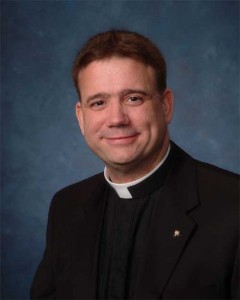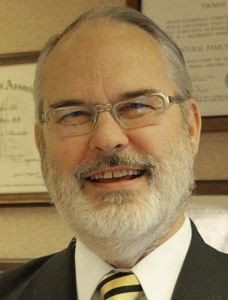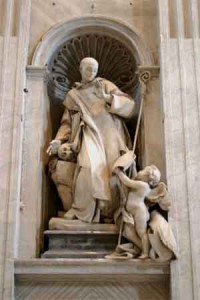“Be A Man: Becoming the Man God Created You to Be” is important for all of us to read – male and female!   Bruce and I had the chance to speak with Fr. Larry Richards about the challenges faced by men in today’s culture to be authentically the males God desires them to be.  The emphasis is on the  importance of a healthy spiritual life in leading to true manhood.  Fr. Larry minces no words in what he offers and the challenges men of all ages.
 Bruce and I had the chance to speak with Fr. Larry Richards about the challenges faced by men in today’s culture to be authentically the males God desires them to be.  The emphasis is on the  importance of a healthy spiritual life in leading to true manhood.  Fr. Larry minces no words in what he offers and the challenges men of all ages.
[powerpress]
“Father Larry talks straight to men in his own manly style. He pulls no spiritual punches–I don’t think he knows how to! He pokes, pushes, sometimes verbally slaps men into being God’s men, all with an obvious love for them and faith in their ability to persevere to heaven.”
— Dr. Ray Guarendi, radio host and author
Check out this book at Igantius.com
 Also check out Fr. Larry’s interview
Also check out Fr. Larry’s interview
for his book on discernmentcalled “Surrender” on Inside the Pages #121Â
Tags: catholic, catholic podcast, catholic prayer, cathollc spirituality, male spirituality, manhood
This entry was posted on Thursday, October 13th, 2011 at 1:37 pm
You can follow any responses to this entry through the RSS 2.0 feed.
HUMAN HISTORY IS A HISTORY OF SALVATION – Psalm 126
VATICAN CITY, OCT. 12, 2011 (Zenit.org).- Here is a translation of the Italian-language catechesis Benedict XVI gave today during the general audience held in St. Peter’s Square. The Pope today continued his catecheses on prayer with a reflection on Psalm 126.
* * *
In the previous catecheses, we have meditated on a number of psalms of lament and of trust. Today, I would like to reflect with you on a notably joyous psalm, a prayer that sings with joy the marvels of God. It is Psalm 126 — according to Greco-Latin numbering, 125 — which extols the great things the Lord has done with His people, and which He continues to do with every believer.
The psalmist begins the prayer in the name of all Israel by recalling the thrilling experience of salvation:
“When the Lord restored the fortunes of Zion,
we were like those who dream.
Then our mouth was filled with laughter,
and our tongue with shouts of joy” (Verses 1-2a).
The psalm speaks of “restored fortunes”; that is, restored to their original state in all their former favorability. It begins then with a situation of suffering and of need to which God responds by bringing about salvation and restoring the man who prays to his former condition; indeed, one that is enriched and even changed for the better. This is what happens to Job, when the Lord restores to him all that he had lost, redoubling it and bestowing upon him an even greater blessing (cf. Job 42:10-13), and this is what the people of Israel experience in returning to their homeland after the Babylonian exile.
This psalm is meant to be interpreted with reference to the end of the deportation to a foreign land: The expression “restore the fortunes of Zion” is read and understood by the tradition as a “return of the prisoners of Zion.” In fact, the return from exile is paradigmatic of every divine and saving intervention, since the fall of Jerusalem and the deportation into Babylon were devastating experiences for the Chosen People, not only on the political and social planes, but also and especially on the religious and spiritual ones. The loss of their land, the end of the davidic monarchy and the destruction of the Temple appear as a denial of the divine promises, and the People of the Covenant, dispersed among the pagans, painfully question a God who seems to have abandoned them.
Therefore, the end of the deportation and their return to their homeland are experienced as a marvelous return to faith, to trust, to communion with the Lord; it is a “restoring of fortunes” that involves a conversion of heart, forgiveness, re-found friendship with God, knowledge of His mercy and a renewed possibility of praising Him (cf. Jeremiah 29:12-14; 30:18-20; 33:6-11; Ezekiel 39:25-29). It is an experience of overflowing joy, of laughter and of cries of jubilation, so beautiful that “it seems like a dream.” Divine help often takes surprising forms that surpass what man is able to imagine; hence the wonder and joy that are expressed in this psalm: “The Lord has done great things.” This is what the nations said, and it is what Israel proclaims:
“Then they said among the nations,
‘the Lord has done great things for them.’
The Lord has done great things for us;
we are glad” (Verses 2b-3).
God performs marvelous works in the history of men. In carrying out salvation, He reveals Himself
to all as the powerful and merciful Lord, a refuge for the oppressed, who does not forget the cry of the poor (cf. Psalm 9:10,13), who loves justice and right and of whose love the earth is filled (cf. Psalm 33:5). Thus, standing before the liberation of the People of Israel, all the nations recognize the great and marvelous things God has accomplished for His People, and they celebrate the Lord in His reality as Savior.
And Israel echoes the proclamation of the nations, taking it up and repeating it once more — but as the protagonist — as a direct recipient of the divine action: “The Lord has done great things for us”; “for us” or even more precisely, “with us,” in hebrew ‘immanû, thus affirming that privileged relationship that the Lord keeps with His chosen ones, and which is found in the nameEmmanuel, “God with us,” the name by which Jesus would be called, His complete and full revelation (cf. Matthew 1:23).
Dear brothers and sisters, in our prayer we should look more often at how, in the events of our own lives, the Lord has protected, guided and helped us, and we should praise Him for all He has done and does for us. We should be more attentive to the good things the Lord gives to us. We are always attentive to problems and to difficulties, and we are almost unwilling to perceive that there are beautiful things that come from the Lord. This attention, which becomes gratitude, is very important for us; it creates in us a memory for the good and it helps us also in times of darkness. God accomplishes great things, and whoever experiences this — attentive to the Lord’s goodness with an attentiveness of heart — is filled with joy. The first part of the psalm concludes on this joyous note. To be saved and to return to one’s homeland from exile are like being returned to life: Freedom opens up to laughter, but is does so together with a waiting for a fulfillment still desired and implored. This is the second part of our psalm, which continues: (more…)
Tags: catholic, catholic podcast, catholic prayer, cathollc spirituality, pope benedict xvi, prayer, psalm 126
This entry was posted on Wednesday, October 12th, 2011 at 5:48 pm
You can follow any responses to this entry through the RSS 2.0 feed.
The Novena to St. Teresa of Avila, Day 7
composed by  by St. Alphonsus of Liguori.
Join in on Day 7 [powerpress = “devotionals-prayers”]
O most loving Lord Jesus Christ! we thank Thee for the wonderful gift of the wound in the heart which Thou didst grant to Thy beloved Teresa; we pray Thee, by Thy merits, and by those of Thy seraphic spouse, to grant us also a like wound of love, that, henceforth, we may love Thee and give our mind to the love of nothing but Thee.
Say one Our Father, Hail Mary and Glory be.
V. St. Teresa, pray for us:
R. That we may become worthy of the promises of Jesus Christ.
Let us pray: Graciously hear us, O God of our salvation! that as we rejoice in the commemoration of the blessed virgin Teresa, so we may be nourished by her heavenly doctrine, and draw from thence the fervour of a tender devotion; through our Lord Jesus Christ, Thy Son, Who liveth and reigneth with Thee in the unity of the Holy Spirit, God for ever and ever. Amen.
Tags: catholic, catholic podcast, catholic prayer, cathollc spirituality, st alphonsus, st teresa
This entry was posted on Wednesday, October 12th, 2011 at 12:05 am
You can follow any responses to this entry through the RSS 2.0 feed.
The Novena to St. Teresa of Avila, Day 6
composed by  by St. Alphonsus of Liguori.
Join in on Day 6 [powerpress = “devotionals-prayers”]
O most bountiful Lord Jesus Christ! we thank Thee for the gift of devotion towards Thy sweet mother, Mary and her holy spouse, Joseph, which Thou didst grant to Thy beloved Teresa; we pray Thee, by Thy merits, and by those of Thy most dear spouse, to give us the grace of a special and tender devotion towards Thy most holy mother, Mary, and towards Thy beloved foster-father, Joseph.
Say one Our Father, Hail Mary and Glory be.
V. St. Teresa, pray for us:
R. That we may become worthy of the promises of Jesus Christ.
Let us pray: Graciously hear us, O God of our salvation! that as we rejoice in the commemoration of the blessed virgin Teresa, so we may be nourished by her heavenly doctrine, and draw from thence the fervour of a tender devotion; through our Lord Jesus Christ, Thy Son, Who liveth and reigneth with Thee in the unity of the Holy Spirit, God for ever and ever. Amen
Tags: catholic, catholic podcast, catholic prayer, cathollc spirituality, hail mary, jesus christ, Lord Jesus Christ, st teresa
This entry was posted on Wednesday, October 12th, 2011 at 12:04 am
You can follow any responses to this entry through the RSS 2.0 feed.
Show 6 – Cerebrocentric vs. Genitocentric Sexuality
“Your Fertility Care Consultâ€
with Dr. Thomas Hilgers, founder of the Pope Paul VI Institute
for The Study of Human Reproduction
hosted by Kris McGregor
[powerpress]
listen to the entire series at Dr. Hilger’s Discerning Hearts Page
The Pope Paul VI Institute, founded in 1985 by Thomas W. Hilgers, MD, is internationally recognized for its outstanding achievements in the field of natural fertility regulation and reproductive medicine — 30 years of scientific research and educational program development; allied health professional education programs for couples and professionals; professional, caring, and morally acceptable patient services. The Pope Paul VI Institute for the Study of Human Reproduction is building a culture of life in women’s health care through its major developments — Creighton Model FertilityCare System and NaProTechnology.
Tags: catholic, catholic podcast, catholic prayer, cathollc spirituality, creighton model, pope paul vi institute, thomas hilgers, Thomas W. Hilgers, w/ Dr. Thomas Hilgers
This entry was posted on Monday, October 10th, 2011 at 9:45 am
You can follow any responses to this entry through the RSS 2.0 feed.
Episode 11- Regnum Novum: Bringing forth the New Evangelization through Catholic Social Teaching with Omar Guiterrez – Value 5 The Common Good, Universal Destination of Goods, Subsidiarity, Participation, Solidarity part 5
Social Teaching with Omar Guiterrez – Value 5 The Common Good, Universal Destination of Goods, Subsidiarity, Participation, Solidarity part 5
[powerpress]
These are the five principles laid out in the Compendium of the Social Doctrine of the Church. If we understand these principles, then the work of the Revolution can begin. We are made now for a New Kingdom with Christ as our King in all things. Let us discover this place together, and make the devil cringe and know the suffering of defeat. “Love”
Discerning Hearts is blessed to present Omar F. A. Guiterrez, M.A. , Special Assistant to Archbishop George Lucas of the Archdiocese of Omaha, in a groundbreaking series which breaks open the heart of Catholic Social Doctrine.
We encourage you to visit “Regnum Novum – A New Kingdom: A Revolution” Omar Guiterrez’s blog site
 We live at a very special time. The confluence of many things has brought forth the clear need to be able to articulate the Social Teaching of the Catholic Church in a way that is accessible and applicable. This is not to be an effort where high-minded theories are to be bandied about. Rather, this is a time of opportunity wherein we can apply the Social Doctrine to the concrete so as to bring about a New Kingdom, a Revolution. – Omar G. from Regnum Novum
We live at a very special time. The confluence of many things has brought forth the clear need to be able to articulate the Social Teaching of the Catholic Church in a way that is accessible and applicable. This is not to be an effort where high-minded theories are to be bandied about. Rather, this is a time of opportunity wherein we can apply the Social Doctrine to the concrete so as to bring about a New Kingdom, a Revolution. – Omar G. from Regnum Novum
From episode 11… Point 5: The Common Good, Universal Destination of Goods, Subsidiarity, Participation, Solidarity
These are the five principles laid out in the Compendium of the Social Doctrine of the Church. If we understand these principles, then the work of the Revolution can begin. We are made now for a New Kingdom with Christ as our King in all things. Let us discover this place together, and make the devil cringe and know the suffering of defeat.
In this episode we focus on “Solidarity”.
Also visit Omar’s “Discerning Hearts” page Catholic Social Teaching 101
Tags: catholic, catholic podcast, catholic prayer, catholic social doctrine, catholic social teaching, cathollc spirituality, Omar Guiterrez, solidarity
This entry was posted on Monday, October 10th, 2011 at 8:41 am
You can follow any responses to this entry through the RSS 2.0 feed.
Vatican City, Oct 6, 2010 / 03:54 pm (CNA/EWTN News).- Anticipating Thursday’s celebration of the Feast of Our Lady of the Rosary, the Holy Father called on the faithful to make an effort to rediscover the prayer. He urged Christians to seek intercession, protection and personal encounter with Christ through the “simple but efficient prayer,” especially during the Marian month of October.
Greeting the faithful in 10 different languages during Wednesday’s general audience, the Holy Father spoke of the Rosary as “a particular prayer of the Church and a spiritual weapon for each of us.”
He prayed that the meditation of Jesus and Mary’s life through the Rosary might be, “for all of us, light on the evangelical path of spiritual renewal and conversion of heart.”
Speaking in Portuguese, but referring to all people, he invited families to join together with the Virgin Mary so as to cooperate fully with the salvific designs of God. In Croatian, he said to ask for her intercession and protection for each person and family, exhorting prayers also for vocations to the priesthood and religious life.
In still other languages,  he asked that the faithful “rediscover the value” of the “simple but efficient prayer” of the Rosary “as a way for a personal encounter with Christ.”
he asked that the faithful “rediscover the value” of the “simple but efficient prayer” of the Rosary “as a way for a personal encounter with Christ.”
“October,” he said in the Italian greeting that concluded his public words on Wednesday, “is the month of the Holy Rosary, which invites us to value this prayer so dear to the tradition of the Christian people.”
Addressing some of the special guests at the audience, he said, “I invite you, dear young people, to make of the Rosary your daily prayer. I encourage you, dear sick, to grow, thanks to the recitation of the Rosary, in the trusting abandonment to the hands of God. I exhort you, dear newlyweds, to make of the Rosary a constant contemplation of the mysteries of Christ.” – CNA
Tags: catholic, catholic podcast, catholic prayer, cathollc spirituality, feast of our lady of the rosary, holy father, intercession, month of the holy rosary, prayer, prayer of the rosary, virgin mary
This entry was posted on Sunday, October 9th, 2011 at 8:29 pm
You can follow any responses to this entry through the RSS 2.0 feed.
St. Thais is one of the conversion stories just begging for an opera… and thanks to Jules Massenet we have one. I couldn’t find any renderings of St. Thais that weren’t (for me) uncomfortably provocative, except for the icon pictured. When you read her life story you know why.
and thanks to Jules Massenet we have one. I couldn’t find any renderings of St. Thais that weren’t (for me) uncomfortably provocative, except for the icon pictured. When you read her life story you know why.
St. Thais lived in Egypt in the fifth century. Left an orphan after the death of her wealthy parents, she led a pious life, distributing her wealth to the poor and giving shelter to pilgrims on her estate. She decided that she would never marry, but would devote her life to serving Christ.
After spending all her inheritance, Thais was tempted to acquire more money by any means and began to lead a sinful life. The Elders of Sketis near Alexandria heard of her fall, and asked St. John the Dwarf to go to Thais and persuade her to repent. “She was kind to us,†they said, “now perhaps we can help her. You, Father, are wise. Go and try to save her soul, and we will pray that the Lord will help you.â€
The Elder went to her home, but Thais’s servant refused to let him into the house. St. John said, “Tell your mistress that I have brought her something very precious.†Knowing that the monks sometimes found pearls at the seashore, Thais told her servant to admit the visitor. St. John sat down and looked her in the face, and then began to weep. Thais asked him why he was crying. “How can I not weep,†he asked, “when you have forsaken your Bridegroom, the Lord Jesus Christ, and are pleasing Satan by your deeds?â€
The Elder’s words pierced the soul of Thais like a fiery arrow, and at once she realized how sinful her present life had become. In fear, she asked him if God would accept the repentance of a sinner like her. St. John replied that the Savior awaited her repentance, and that was why He came, to seek and to save the perishing. “He will welcome you with love,†he said, “and the angels will rejoice over you. As the Savior said Himself, one repentant sinner causes the powers of Heaven to rejoice.†(Luke 15:7).
A feeling of repentance enveloped her, and regarding the Elder’s words as a call from the Lord Himself to return to Him, Thais trembled and thought only of finding the path of salvation. She stood up and left her house without speaking to her servants, and without making any plans for the disposal of her property, so that even St. John was amazed.
Following St. John into the wilderness, she returned to God through penitence and prayer. Night fell, and the Elder prepared a place for Thais to lay down and sleep. He made a pillow for her from the sand, and he went off somewhat farther, going to sleep after his evening prayers.
In the middle of the night, he was awakened by a light coming down from the heavens to the place where Thais was sleeping. In the radiant light, he saw holy angels bearing her soul to Paradise. When he went over to Thais, he found her dead.
St. John prayed and asked God to reveal to him whether Thais had been saved. An angel of God appeared and told him, “Abba John, her one hour of repentance was equal to many years, because she repented with all her soul, and a compunctionate heart.â€
After burying the body of the saint, St. John returned to Sketis and told the monks what had happened. All offered thanks to God for His mercy toward Thais who, like the wise thief, repented in a single moment. – antiochan.org
OK, now in the opera, the monk falls in love with Thais after her conversion, but after her time in the desert, she rebukes him, embrasses heaven…then dies (it’s an opera after all…somebody always dies in the end). “Thais” by Massenet is one of my favorite performances by my FAVORITE soporano, Renee Fleming…I LOVE THIS ENDING (we should all look so could when we pass on). You just have to love those French composers (you’ll probably recognize the melody 5 minutes in) What a way to be commerated…St. Thais, please pray for us
Tags: catholic, catholic podcast, catholic prayer, cathollc spirituality, monks, pious life, repentance, repentant sinner, St. John, Thais
This entry was posted on Saturday, October 8th, 2011 at 8:28 pm
You can follow any responses to this entry through the RSS 2.0 feed.
Heart of Hope Part 4 – The healing hand of Christ, seeing the will of God, and how we suffer love. The tale of the two criminals on the cross next to Christ on Gologotha.
[powerpress = “deacon-james-keating”]
 Deacon James Keating, PhD, the director of Theological Formation for the Institute for Priestly Formation, located at Creighton University, in Omaha, is making available to “Discerning Hearts” and all who listen, his series of programs entitled “The Heart of Hope”.
Deacon James Keating, PhD, the director of Theological Formation for the Institute for Priestly Formation, located at Creighton University, in Omaha, is making available to “Discerning Hearts” and all who listen, his series of programs entitled “The Heart of Hope”.
This extraordinarily popular series explores the work of suffering in the Christian life and how God can use it to transform the heart of the individual and the world. 
The “Heart of Hope”  tackles a very tough subject…the gift of suffering in the Christian life. Deacon Keating guides us well.
For more information on the “Institute of Priestly Formation” and for other material available by Deacon Keating, just click here
Don’t forget to pickup a copy of “Communion with Christ” , it is one of the best audio sets on prayer…ever!
Check out Deacon Keating’s “Discerning Heart” page
Tags: catholic, catholic podcast, catholic prayer, cathollc spirituality, Deacon James Keating, Deacon Keating, institute for priestly formation, PhD, theological formation
This entry was posted on Thursday, October 6th, 2011 at 10:23 pm
You can follow any responses to this entry through the RSS 2.0 feed.
St. Bruno was one of the most exceptional scholars, teachers, prayer warriors of his time : “…a prudent man whose word was rich in meaning.” I think the key was the gift of great humility. He must have been very close to Our Lady.
: “…a prudent man whose word was rich in meaning.” I think the key was the gift of great humility. He must have been very close to Our Lady.
The Order founded by Bruno — the Carthusians — is one of the strictest in the Church. Carthusians follow the Rule of St. Benedict, but accord it a most austere interpretation; there is perpetual silence and complete abstinence from flesh meat (only bread, legumes, and water are taken for nourishment). Bruno sought to revive the ancient eremitical (hermit)Â way of life. His Order enjoys the distinction of never becoming unfaithful to the spirit of its founder, never needing a reform.
Quote:
Rejoice, my dearest brothers, because you are blessed and because of the bountiful hand of God’s grace upon you. Rejoice, because you have escaped the various dangers and shipwrecks of the stormy world. Rejoice because you have reached the quiet and safe anchorage of a secret harbor. Many wish to come into this port, and many make great efforts to do so, yet do not achieve it. Indeed many, after reaching it, have been thrust out, since it was not granted them from above. By your work you show what you love and what you know. When you observe true obedience with prudence and enthusiasm, it is clear that you wisely pick the most delightful and nourishing fruit of divine Scripture.
~from a letter by Saint Bruno to the Carthusians
Collect:
Father,
you called St. Bruno to serve you in solitude.
In answer to his prayers
help us to remain faithful to you.
amid the changes of this world.
We ask this through our Lord Jesus Christ, your Son,
who lives and reigns with you and the Holy Spirit,
one God, forever and ever. Amen.
St. Bruno is the patron of diabolic possession. St. Bruno, confessor, ecclesiastical writer, and founder of the Carthusian Order. He was born at Cologne about the year 1030; died October 6, 1101.
Tags: Carthusians, catholic, catholic podcast, catholic prayer, cathollc spirituality, humility, prayer, silence, st bruno
This entry was posted on Thursday, October 6th, 2011 at 8:37 am
You can follow any responses to this entry through the RSS 2.0 feed.
Psalm 23 – Vatican.va
Turning to the Lord in prayer implies a radical act of trust, in the awareness that one is entrusting oneself to God who is good, “merciful and gracious, slow to anger, and abounding in steadfast love and faithfulness†(Ex 34:6-7; Ps 86[85]:15; cf. Joel 2:13; Jon 4:2; Ps 103 [102]:8; 145[144]:8; Neh 9:17). For this reason I would like to reflect with you today on a Psalm that is totally imbued with trust, in which the Psalmist expresses his serene certainty that he is guided and protected, safe from every danger, because the Lord is his Shepherd. It is Psalm 23 [22, according to the Greco-Latin numbering], a text familiar to all and loved by all.
“The Lord is my shepherd, I shall not wantâ€: the beautiful prayer begins with these words, evoking the nomadic environment of sheep-farming and the experience of familiarity between the shepherd and the sheep that make up his little flock. The image calls to mind an atmosphere of trust, intimacy and tenderness: the shepherd knows each one of his sheep and calls them by name; and they follow him because they recognize him and trust in him (cf. Jn 10:2-4).
He tends them, looks after them as precious possessions, ready to defend them, to guarantee their well-being and enable them to live a peaceful life. They can lack nothing as long as the shepherd is with them. The Psalmist refers to this experience by calling God his shepherd and letting God lead him to safe pastures: “He makes me lie down in green pastures. He leads me beside still waters; he restores my soul. He leads me in paths of righteousness for his name’s sake†(Ps 23[22]:2-3).
The vision that unfolds before our eyes is that of green pastures and springs of clear water, oases of peace to which the shepherd leads his flock, symbols of the places of life towards which the Lord leads the Psalmist, who feels like the sheep lying on the grass beside a stream, resting rather than in a state of tension or alarm, peaceful and trusting, because it is a safe place, the water is fresh and the shepherd is watching over them.
And let us not forget here that the scene elicited by the Psalm is set in a land that is largely desert, on which the scorching sun beats down, where the Middle-Eastern semi-nomad shepherd lives with his flock in the parched steppes that surround the villages. Nevertheless the shepherd knows where to find grass and fresh water, essential to life, he can lead the way to oases in which the soul is “restored†and where it is possible to recover strength and new energy to start out afresh on the journey.
As the Psalmist says, God guides him to “green pastures†and “still watersâ€, where everything is superabundant, everything is given in plenty. If the Lord is the Shepherd, even in the desert, a desolate place of death, the certainty of a radical presence of life is not absent, so that he is able to say “I shall not wantâ€. Indeed, the shepherd has at heart the good of his flock, he adapts his own pace and needs to those of his sheep, he walks and lives with them, leading them on paths “of righteousnessâ€, that is, suitable for them, paying attention to their needs and not to his own. The safety of his sheep is a priority for him and he complies with this in leading his flock.
Dear brothers and sisters, if we follow the “Good Shepherd†— no matter how difficult, tortuous or long the pathways of our life may seem, even through spiritual deserts without water and under the scorching sun of rationalism — with the guidance of Christ the Good Shepherd, we too, like the Psalmist, may be sure that we are walking on “paths of righteousness†and that the Lord is leading us, is ever close to us and that we “shall lack nothingâ€. For this reason the Psalmist can declare his calm assurance without doubt or fear: “Even though I walk through the valley of the shadow of death, I fear no evil; for you are with me; your rod and your staff they comfort me†(v. 4). (more…)
Tags: catholic, catholic podcast, catholic prayer, cathollc spirituality, jesus the good shepherd, psalm 23, the Psalmist
This entry was posted on Wednesday, October 5th, 2011 at 3:41 pm
You can follow any responses to this entry through the RSS 2.0 feed.
I LOVE talking with Fr. James Martin, especially about the saints!  “Between Heaven and Mirth: Why Joy, Humor, and Laughter Are at the Heart of the Spiritual Life” is fantastic! I don’t think there’s another book like it out there. Fr. Martin takes Scripture, history, the Saints, and the basics of our faith and the spiritual life, and wraps them  all together to bring us a unique and wonderful study of joy and happiness. To say it was uplifting to read would be an understatement.  Others have tried to write humorous books about the Christian faith, but often times their attempts come  off little crass and a tad tasteless….but not Fr. Jim Martin, that’s because it about joy, happiness and grace…and he leads to the well where we can find it.  [powerpress]
Humor, and Laughter Are at the Heart of the Spiritual Life” is fantastic! I don’t think there’s another book like it out there. Fr. Martin takes Scripture, history, the Saints, and the basics of our faith and the spiritual life, and wraps them  all together to bring us a unique and wonderful study of joy and happiness. To say it was uplifting to read would be an understatement.  Others have tried to write humorous books about the Christian faith, but often times their attempts come  off little crass and a tad tasteless….but not Fr. Jim Martin, that’s because it about joy, happiness and grace…and he leads to the well where we can find it.  [powerpress]
You can find the book here
Tags: catholic, catholic podcast, catholic prayer, cathollc spirituality, fr. james martin, humor, James Martin, Jim Martin, Mirth, saints
This entry was posted on Wednesday, October 5th, 2011 at 10:19 am
You can follow any responses to this entry through the RSS 2.0 feed.
 Saint Maria Faustina Kowalska –The Humble Instrument
Saint Maria Faustina Kowalska –The Humble Instrument
The article below is found on the Divine Mercy website – I highly encourage you to visit there (they are doing wonderful things)!
Sister Faustina was a young, uneducated, nun in a convent of the Congregation of Sisters of Our Lady of Mercy in Cracow, Poland during the 1930’s. She came from a very poor family that struggled on their little farm during the years of World War I. She had only three years of very simple education, so hers were the humblest tasks in the convent, usually in the kitchen or garden. However, she received extraordinary revelations or messages from Our Lord Jesus. Jesus asked Sr. Faustina to record these experiences, which she compiled in notebooks. These notebooks are known today as the Diary of Saint Maria Faustina Kowalska and the words contained within are God’s loving message of Divine Mercy. Though the Divine Mercy message is not new to the teachings of the Church, Sr. Faustina’s Diary sparked a great movement, and a strong and significant focus on the mercy of Christ. Pope John Paul II canonized Sr. Faustina in 2000 making her the “first saint of the new millennium.” Speaking of Sr. Faustina and the importance of the message contained in her Diary, the Pope call her “the great apostle of Divine Mercy in our time.” Today, we continue to rely of Saint Faustina as a constant reminder of the message to trust in Jesus’ endless mercy, and to live life mercifully toward others. We also turn to her in prayer and request her intercession to our merciful Savior on our behalf. At the National Shrine of The Divine Mercy, we include the following in our 3 o’clock prayers:
Saint Faustina,
You told us that your mission would continue after your death and that you would not forget us. Our Lord also granted you a great privilege, telling you to “distribute graces as you will, to who you will, and when you will.” Relying on this, we ask your intercession for the graces we need, especially for the intentions just mentioned. Help us, above all, to trust in Jesus as you did and thus to glorify His mercy every moment of our lives. Amen
–from DivineMercy.org
Here is my favorite (if that is possible) of the notebook V “Conversation” dialogues
The Diary of
St. Â M. Faustina Kowalska
Perpetually Professed member
of the
Congregation of Sisters of
Our Lady of Mercy
NOTEBOOK V
Conversation of the Merciful God with a Soul Striving after Perfection.
Jesus: I am pleased with your efforts, O soul aspiring for perfection, but why do I see you so often sad and depressed? Tell Me, My child, what is the meaning of this sadness, and what is its cause?
Soul: Lord, the reason for my sadness is that, in spite of my sincere resolutions, I fall again into the same faults. I make resolutions in the morning, but in the evening I see how much I have departed from them.
Jesus: You see what you are of yourself. The cause of your falls is that you rely too much upon yourself and too little on Me. But let this not sadden you so much. You are dealing with the God of mercy, which your misery cannot exhaust. Remember, I did not allot only a certain number of pardons.
Soul: Yes, I know all that but the great temptations assail me, and various doubts waken within me and moreover, everything irritates and discourages me.
Jesus: My child, know that the greatest obstacles to holiness are discouragement and an exaggerated anxiety. These will deprive you of the ability to practice virtue. All temptations united together ought not disturb your interior peace, not even momentarily. Sensitiveness and discouragement are fruits of self love. You should not become discouraged, but strive to make My love reign in place of your self love. Have confidence, My child. Do not lose heart in coming for pardon, for I am always ready to forgive you. As often as you beg for it, you glorify My mercy.
Soul: I understand what is the better thing to do, what pleases You more, but I encounter great obstacles in acting on this understanding.
Jesus: My child, life on earth is a struggle indeed; a great struggle for My kingdom. But fear not, because you are not alone. I am always supporting you, so lean on Me as you struggle, fearing nothing. Take the vessel of trust and draw from the fountain of life – for yourself, but also for other souls, especially such as are distrustful of My goodness.
Soul: O Lord, I feel my heart being filled with Your love and the rays of Your mercy and love piercing my soul. I go, Lord, at Your command. I go to conquer souls. Sustained by Your grace, I am ready to follow You Lord, not only to Tabor, but also to Calvary. I desire to lead souls to the fount of Your mercy so that the splendor of Your mercy may be reflected in all souls, and the home of our Father be filled to overflowing. And when the enemy begins to attack me, I shall take refuge behind the shield of Your mercy.
Pray the Divine Mercy Prayer [powerpress = “devotionals-prayers”]
The Discerning Hearts Divine Mercy Novena Page
Tags: catholic, catholic podcast, catholic prayer, cathollc spirituality, divine mercy, divine mercy message, Faustina Kowalska, john paul ii, mystic, mystic of the Church, national shrine of the divine mercy, Saint Faustina, saint maria faustina kowalska, Sister Faustina, st faustina
This entry was posted on Wednesday, October 5th, 2011 at 12:04 am
You can follow any responses to this entry through the RSS 2.0 feed.
Episode 10- Regnum Novum: Bringing forth the New Evangelization through Catholic Social Teaching with Omar Guiterrez– Value 5 The Common Good, Universal Destination of Goods, Subsidiarity, Participation, Solidarity part 4
Social Teaching with Omar Guiterrez– Value 5 The Common Good, Universal Destination of Goods, Subsidiarity, Participation, Solidarity part 4
In this episode we focus on “Participation”.
[powerpress]
These are the five principles laid out in the Compendium of the Social Doctrine of the Church. If we understand these principles, then the work of the Revolution can begin. We are made now for a New Kingdom with Christ as our King in all things. Let us discover this place together, and make the devil cringe and know the suffering of defeat. “Love”
Discerning Hearts is blessed to present Omar F. A. Guiterrez, M.A. , Special Assistant to Archbishop George Lucas of the Archdiocese of Omaha, in a groundbreaking series which breaks open the heart of Catholic Social Doctrine.
We encourage you to visit “Regnum Novum – A New Kingdom: A Revolution” Omar Guiterrez’s blog site
 We live at a very special time. The confluence of many things has brought forth the clear need to be able to articulate the Social Teaching of the Catholic Church in a way that is accessible and applicable. This is not to be an effort where high-minded theories are to be bandied about. Rather, this is a time of opportunity wherein we can apply the Social Doctrine to the concrete so as to bring about a New Kingdom, a Revolution. – Omar G. from Regnum Novum
We live at a very special time. The confluence of many things has brought forth the clear need to be able to articulate the Social Teaching of the Catholic Church in a way that is accessible and applicable. This is not to be an effort where high-minded theories are to be bandied about. Rather, this is a time of opportunity wherein we can apply the Social Doctrine to the concrete so as to bring about a New Kingdom, a Revolution. – Omar G. from Regnum Novum
From episode 10… Point 5: The Common Good, Universal Destination of Goods, Subsidiarity, Participation, Solidarity
These are the five principles laid out in the Compendium of the Social Doctrine of the Church. If we understand these principles, then the work of the Revolution can begin. We are made now for a New Kingdom with Christ as our King in all things. Let us discover this place together, and make the devil cringe and know the suffering of defeat.
In this episode we focus on “Participation”.
Also visit Omar’s “Discerning Hearts” page Catholic Social Teaching 101
Tags: archdiocese of omaha, catholic, catholic podcast, catholic prayer, catholic social doctrine, cathollc spirituality, compendium of the social doctrine of the church, new evangelization, social teaching of the catholic church
This entry was posted on Monday, October 3rd, 2011 at 10:49 am
You can follow any responses to this entry through the RSS 2.0 feed.
Show 5 – Creighton Model System and NaPro technology – Care versus Control
“Your Fertility Care Consultâ€
with Dr. Thomas Hilgers, founder of the Pope Paul VI Institute
for The Study of Human Reproduction
hosted by Kris McGregor
[powerpress]
listen to the entire series at Dr. Hilger’s Discerning Hearts Page
The Pope Paul VI Institute, founded in 1985 by Thomas W. Hilgers, MD, is internationally recognized for its outstanding achievements in the field of natural fertility regulation and reproductive medicine — 30 years of scientific research and educational program development; allied health professional education programs for couples and professionals; professional, caring, and morally acceptable patient services. The Pope Paul VI Institute for the Study of Human Reproduction is building a culture of life in women’s health care through its major developments — Creighton Model FertilityCare System and NaProTechnology.
Tags: catholic, catholic podcast, catholic prayer, cathollc spirituality, Control w/ Dr. Thomas Hilgers, creighton university, fertility care, human reproduction, pope paul vi institute, thomas hilgers, Thomas W. Hilgers
This entry was posted on Monday, October 3rd, 2011 at 10:32 am
You can follow any responses to this entry through the RSS 2.0 feed.






